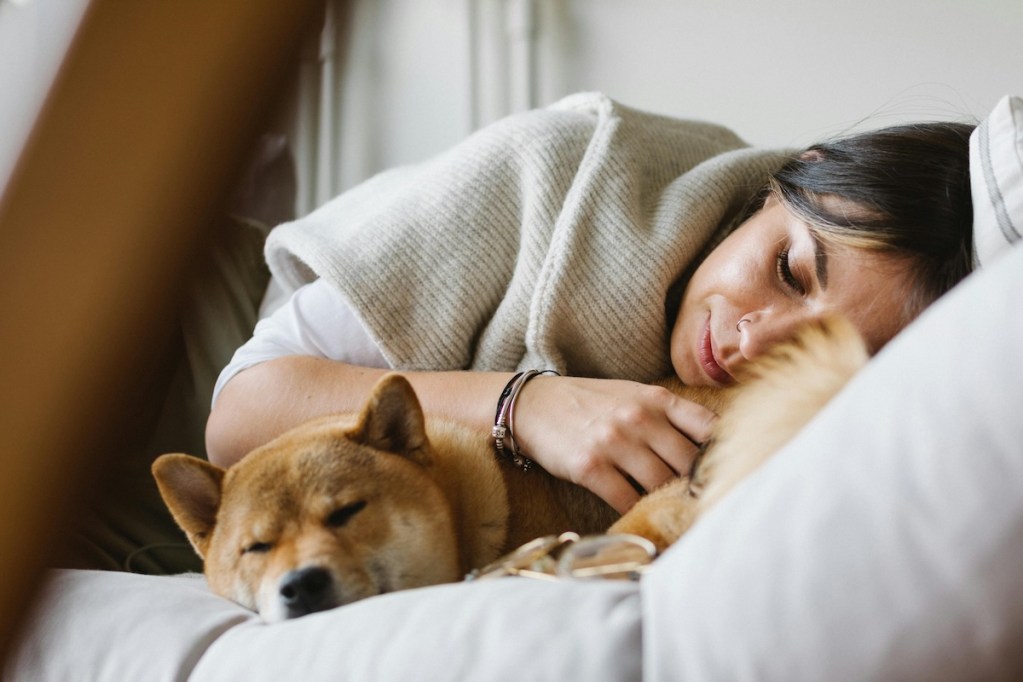Pets have a way of taking up a whole lot of space in our hearts and beds. Even small dog breeds and cats can become serious cover hogs. With dogs, the inclination is instinctual — they’re pack animals that naturally stick together. Cats are generally considered aloof (and nocturnal), but these domesticated sofa lions also love their cuddles. Sleeping with pets of either species can (literally) give you the warm and fuzzies.
Yet, if you’re going by stereotypes, you would think sleeping with dogs has far more significant benefits than catching Z’s with cats. A new study may have you tossing and turning — you may already be doing so if you’re co-sleeping with a dog. In a 2024 Scientific Reports study, researchers noted that sleeping with dogs could hurt sleep quality. The authors did not find the same issue for people who reported sleeping with cats.
Floored? Don’t worry. Participants likely were, too.
What the study tells us about sleeping with pets

Dr. Brian N Chin, a psychology professor at Trinity College, headed up the study, which was published in March 2024. Dr. Chin surveyed 1,591 Americans ages 18 to 91 on their sleep habits, and 758 reported sleeping with pets. The remaining 833 did not co-sleep with a pet. For the purposes of this study, “co-sleeping” was defined as room-sharing for at least part of the night, not specifically bed-sharing.
People were also asked to share their beliefs on sleeping with a pet, and a whopping 93% believed this habit would have a positive or neutral effect on their sleep quality.
The data showed otherwise, especially for pups (sorry, dog people). The data found that people who shared a room with an animal for at least part of the night had “poorer sleep quality and more insomnia symptoms than those who did not.”
That’s not all. Like a curious pup, researchers dug deeper and checked whether the type of pet a person room-shared with mattered. It did. Co-sleeping with dogs harmed sleep quality. There was no evidence suggesting that sleeping with cats lowered sleep quality. In other words, if you take this study as the be-all and end-all, room-sharing with dogs can harm sleep, while sleeping with cats does not.
Don’t swat and hiss at the messenger.
Bottom line

A new study suggests that co-sleeping with dogs — but not cats — can lower sleep quality. The researchers defined “co-sleeping” as room-sharing for at least part of the night. Does that mean you should give your dog the boot (or invite your naturally nocturnal cat to shack up with you tonight)? Not necessarily.
If you enjoy sleeping with your dog and are getting seven or more hours of sleep nightly, you need not make any changes. However, if you struggle to get sleep, it’s worth exploring sleeping habits (including sharing a room or sleep surface with your dog). Remember, your pet needs a well-rested parent to care for them, so giving them their space, like a cozy bed in the room next door, is nothing to feel guilty about.




